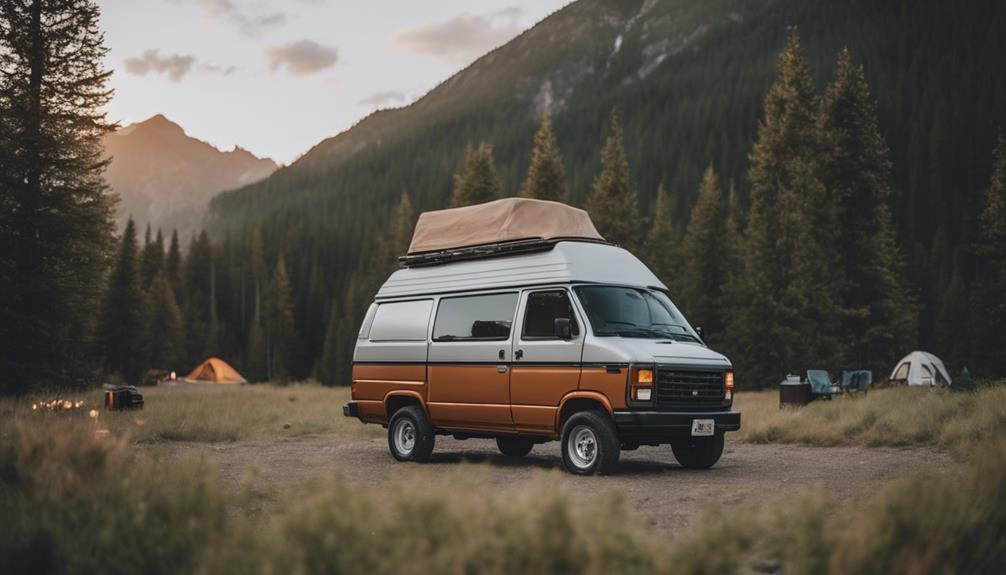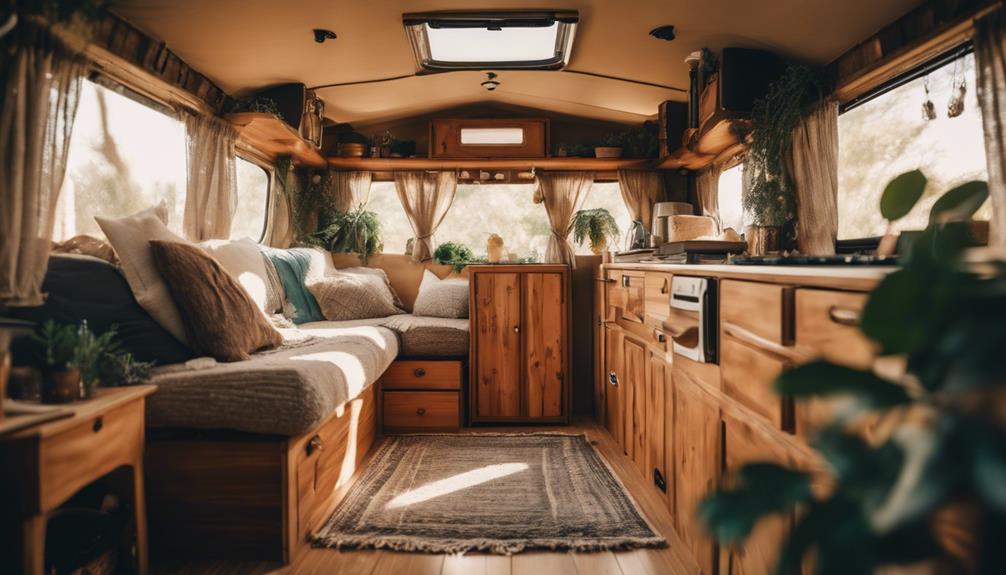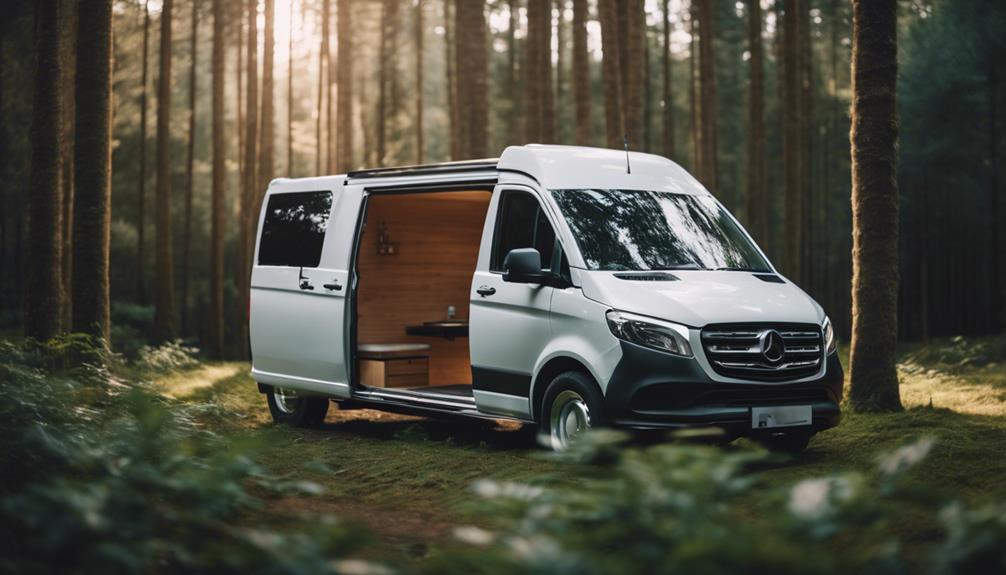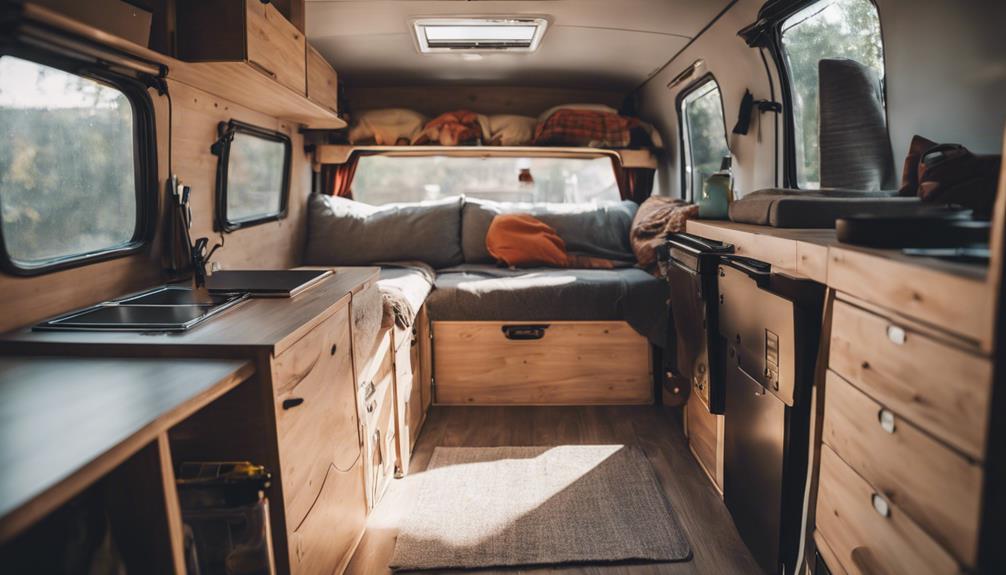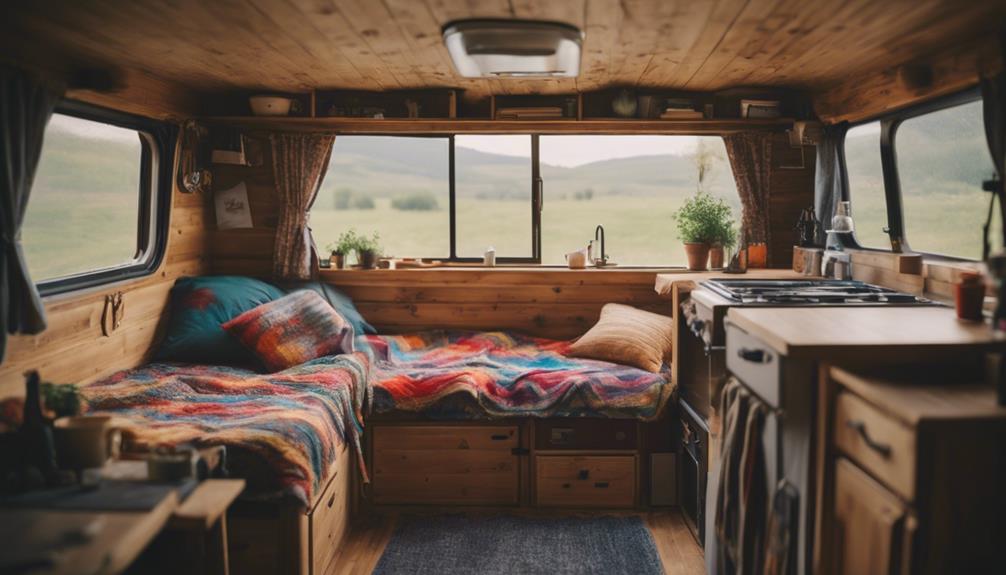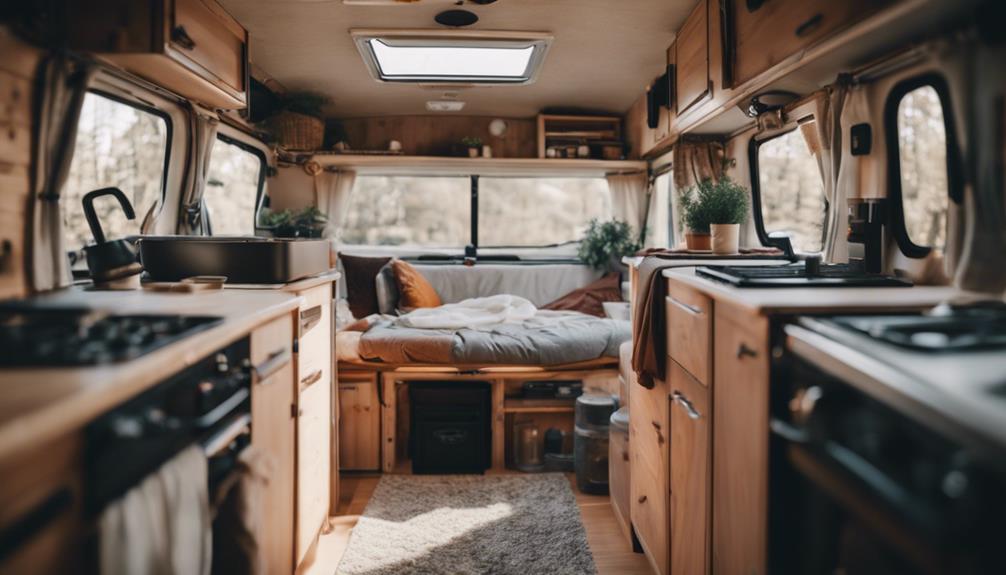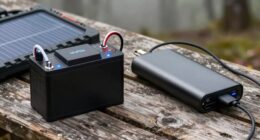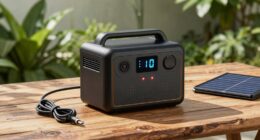When picking the best donor van for your camper conversion, consider models like the Ford Transit and Mercedes-Benz Sprinter for their ample space and versatility. If you're on a budget, smaller options like the Citroen Berlingo or Renault Kangoo offer great handling and affordability. Factor in the condition and mileage of the van before you buy, as these will impact your long-term investment. You'll also want to align your choice with how you plan to use the van, whether for full-time living or occasional trips. Keep exploring to uncover more tips for a successful conversion!
Introduction
Choosing the right donor van for your camper conversion can make all the difference in your adventures on the road. When considering the best van to convert, you'll want to think about your specific needs, like whether you plan to live in it full-time or just take occasional trips. Popular vans like the Mercedes-Benz Sprinter, Ford Transit, and Volkswagen Transporter stand out for their reliability and versatile layouts, making them ideal choices for van conversions.
Keep in mind that the average base vehicle cost for a camper van conversion is around €9,000. However, total conversion costs can reach approximately €17,500, so budgeting effectively is vital. While you might lean towards low mileage options for a better long-term investment, don't overlook high-mileage vehicles that are well-maintained and come with a solid service history.
Evaluating the donor van's exterior condition, service history, and parts availability is essential for ensuring a successful conversion and smooth maintenance thereafter. By focusing on these factors, you'll increase the chances of a rewarding camper van experience that meets your adventure needs.
Background Information
Campervan conversions have skyrocketed in popularity, and you might be wondering why.
With a growing demand for eco-friendly options, more people are seeking sustainable travel solutions.
Choosing the right donor van not only meets your personal needs but also taps into this exciting trend.
Campervan Conversion Popularity Surge
The surge in campervan conversions reflects a growing desire for flexible travel and remote living, especially during the COVID-19 pandemic. You're not alone; a recent survey found that 62% of people are interested in van life, drawn to the adventure and simplicity it offers. This trend has led to a significant boom in the campervan conversion market. Over the past two years, DIY conversion projects have risen by 40%, indicating a strong shift towards personalizing vehicles like the Ford Transit and Mercedes Sprinter.
As you consider venturing into camper conversions, you'll find a wealth of online platforms and communities dedicated to van life. These resources provide inspiration, tips, and support to help you navigate your own campervan conversion journey. Whether you're looking to create a cozy weekend getaway or a full-time living space, the popularity of these conversions makes it easier than ever to embark on your adventure.
With the average cost ranging from €5,000 to €31,126, you can choose how much customization you want. The rising interest in campervan conversions is reshaping how people think about travel and lifestyle, inviting you to join the movement.
Rising Demand for Eco-Friendly Vans
Rising awareness about sustainability is driving the demand for eco-friendly vans, as more consumers seek greener alternatives to traditional fuel sources. Electric vans, like the Ford E-Transit and Volkswagen ID. Buzz, are leading this movement with their zero emissions and lower running costs, making them attractive options for those considering camper conversion.
As the global electric vehicle market expands, projections suggest that electric vans will account for 10% of total van sales by 2025. This shift reflects a growing commitment to sustainability, as eco-friendly vans often feature advanced technologies, including regenerative braking and energy-efficient systems. These innovations not only enhance their appeal but also reduce the overall environmental impact.
Government incentives and tax breaks for electric and hybrid vehicles further sweeten the deal, making eco-friendly vans financially appealing. With these benefits in mind, it's no surprise that many are opting for camper conversions using electric models.
Eco-Friendly Van Options
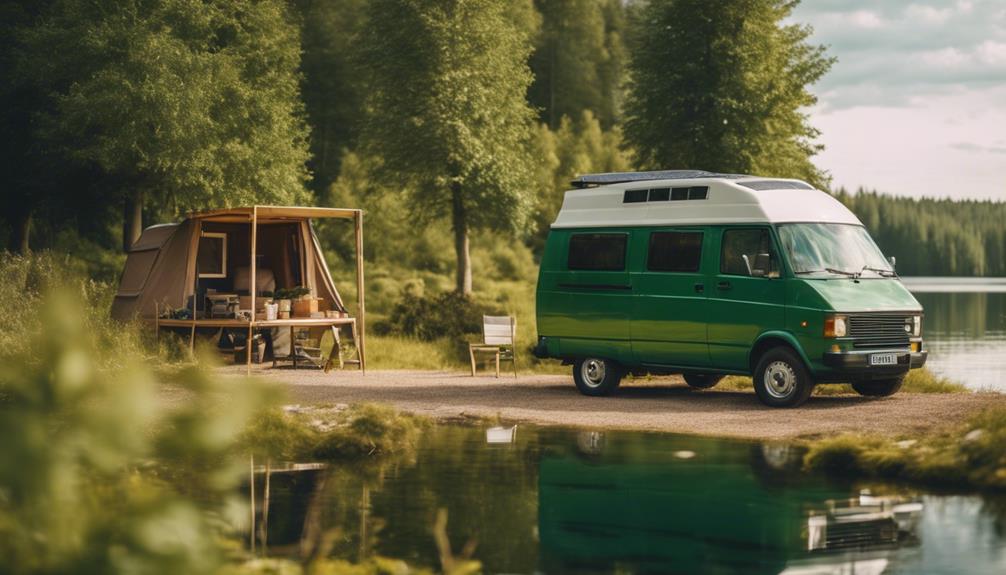
When you're looking to make your camper conversion more eco-friendly, consider using sustainable materials like bamboo or reclaimed wood.
Pair that with energy-efficient power systems, such as solar panels and low-power appliances, to greatly reduce your environmental impact.
These choices not only enhance your van's functionality but also align your travels with a greener lifestyle.
Sustainable Materials in Conversions
Sustainable materials like bamboo plywood and reclaimed wood not only cut down environmental impact but also add a stylish touch to your camper conversion. By choosing eco-friendly options, you're making a conscious decision that benefits both your adventure and the planet.
Insulation made from recycled denim or sheep's wool enhances thermal performance while minimizing reliance on synthetic materials, ensuring your van remains comfortable year-round.
Additionally, consider using low-VOC (volatile organic compounds) paints and finishes. These options improve indoor air quality, making your living space healthier.
When it comes to furnishings, opting for durable, biodegradable materials, such as natural fiber upholstery, supports sustainability and reduces landfill contributions when your van's life cycle ends.
You might also integrate solar panels to harness renewable energy, decreasing your reliance on fossil fuels during your travels. With energy-efficient appliances, you can enjoy modern conveniences while reducing your ecological footprint.
Energy-Efficient Power Systems
Incorporating energy-efficient power systems into your camper conversion not only enhances your eco-friendly approach but also guarantees you can enjoy modern conveniences while minimizing your carbon footprint.
Start by installing solar panels, which considerably reduce your reliance on fossil fuels and lower your energy costs. A typical setup may cost around $2,186, but the long-term savings are worth it.
For off-grid living, consider high-capacity lithium batteries. They provide longer-lasting energy storage, allowing you to efficiently use the solar power generated during the day. Pair your batteries with a solar charge controller to manage the energy flow effectively, ensuring ideal charging and prolonging battery life.
Additionally, opt for a top-loading DC compressor refrigerator. It uses less power compared to traditional AC models, further enhancing your energy efficiency.
You should also replace standard lighting with warm LED tube or strip lights, as they consume considerably less energy while still providing adequate illumination.
Cost Comparison of Van Models
When choosing a donor van for your camper conversion, it's essential to weigh the advantages and disadvantages of different models.
User reviews can give you insight into real-world experiences, while evaluating model performance helps you understand what fits your needs.
Let's break down the costs associated with popular van options and see how they stack up against each other.
Advantages and Disadvantages
Choosing the right van model for your camper conversion involves weighing the advantages and disadvantages, especially when it comes to cost, as prices can vary considerably across different models.
For instance, small vans like the Citroen Berlingo tend to offer better affordability and agile handling, making them great for budget-conscious builds. On the other hand, larger van models, such as the Mercedes Sprinter, provide ample space for extensive DIY projects, but they often come with higher initial costs and maintenance expenses.
You'll also want to take into account conversion costs in your budget allocation. Following the 60/40 rule, you'll typically dedicate 60% of your total budget to the van purchase and 40% to the conversion. This means that a more expensive van will leave less room for your van build.
Used vans can be a viable option if you're looking to save money, but be cautious. While high-mileage vehicles may still perform reliably, evaluating their condition and service history is essential to avoid unexpected repairs.
Ultimately, balancing these factors will help you find the best donor van for your camper conversion.
User Reviews and Experiences
Many users consistently highlight the cost-effectiveness of the Ford Transit compared to other popular models like the Mercedes Sprinter and VW Transporter. User reviews often praise the Transit for its versatile design and practical pricing, which make it a top choice for those looking to convert a van into a campervan.
On average, base vehicle costs for these models range from $9,000 to $27,000, with the Transit typically falling on the lower end of that spectrum.
When it comes to conversion costs, many users report spending between €5,000 and €15,000 for customizations. The average total conversion cost sits around €17,500, but it can skyrocket depending on your needs. Basic renovations can be done for as little as €6,236, while advanced builds might reach up to €31,126.
While the VW Transporter is praised for its heritage value and ease of resale, users often find that the Transit's high roof and ample space make it more practical for living and traveling.
Ultimately, if budget is a primary concern, the Ford Transit emerges as a clear favorite among campervan enthusiasts.
Model Performance Evaluation
Evaluating the cost comparison of various van models is key to understanding which one best suits your camper conversion needs.
The Ford Transit stands out as a popular choice, with prices ranging from $10,000 to $20,000. This model's balance of affordability and quality makes it an attractive option for many converters.
In contrast, the Mercedes Sprinter, while offering high-quality features, can set you back between $20,000 and $27,000, which might strain your budget.
When planning your camper conversion, remember that it's crucial to allocate about two-thirds of your total budget for the van purchase.
With van conversion costs averaging around €8,500, you could be looking at a total amount of approximately €17,500 for a complete camper build.
If you're budget-conscious, consider options like the Citroen Berlingo or Renault Kangoo, known for their affordability and agile handling.
Ultimately, the choice of van model greatly impacts the quality of your camper build.
Investing in a high-quality base vehicle often pays off in durability and overall satisfaction with your camper conversion project.
Essential Tools for Conversion
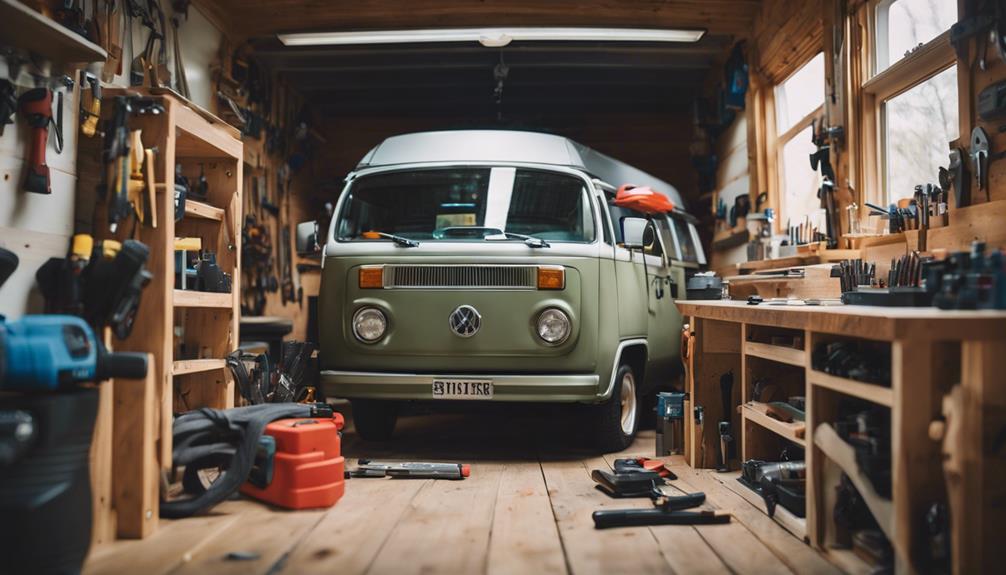
When you start your camper conversion, having the right tools makes all the difference.
You'll need power tools for cutting and assembling, along with hand tools for fastening everything securely.
Plus, measuring and safety equipment guarantee your project runs smoothly and safely.
Conversion Process Overview
To successfully convert a van into a camper, you'll need a variety of essential tools that streamline the process and guarantee high-quality results.
A power drill is indispensable for assembling furniture and fixtures, while a saw will help you cut materials to size. Don't forget your measuring tape; accurate measurements are essential in the conversion process overview, ensuring everything fits within the limited space of popular vehicles.
For securing insulation and fabrics, a staple gun is your best friend, and a heat gun can help manipulate materials like vinyl. When working with electrical wiring, having a thorough toolkit with wrenches, screwdrivers, and pliers will make assembly tasks easier.
Safety gear, including gloves, goggles, and a dust mask, is a must to protect yourself during cutting and drilling.
Essential Conversion Techniques
Mastering essential conversion techniques requires the right tools, making your camper van transformation efficient and enjoyable.
Start with a circular saw for cutting wood and a drill for creating holes and securing assembly components. A jigsaw is also invaluable for making intricate cuts and adjustments, giving you the flexibility you need during your camper conversion.
When it comes to electrical work, a multimeter is essential. It helps you measure voltage, current, and resistance, guaranteeing your wiring installations are safe and effective.
Don't skimp on quality insulation materials like Reflectix or R15 rated safety insulation; they'll greatly improve thermal efficiency and comfort inside your van.
Accurate measurements are critical, so invest in a level and measuring tape. These tools guarantee your furniture and fixtures are properly aligned and securely installed.
Finally, a quality set of wrenches and screwdrivers, including both metric and standard sizes, is necessary for assembling and disassembling various components throughout the conversion process.
With these essential tools in hand, you'll be well-equipped to tackle your camper van transformation with confidence.
What Are the Benefits of Using a Donor Van for Camper Conversion Compared to Other Base Vans?
When looking for the best camper conversion van choices, a donor van offers unique benefits. Using a donor van for camper conversion can be more cost-effective than purchasing a brand new van. Additionally, donor vans often come with some desired features already installed, making the conversion process easier and more efficient.
Conclusion
In choosing the best donor van for your camper conversion, it's essential to weigh your specific needs against the unique features offered by various models.
The best vans for camper conversions, like the Ford Transit and Mercedes-Benz Sprinter, provide ample standing space and reliability for full-time living. If you're focused on budget-conscious conversions, consider smaller options like the Citroen Berlingo or Renault Kangoo, which deliver agility and sufficient space.
Think carefully about your intended use—whether for weekend trips or extended travel—and how much equipment storage you'll need. High-roof vans may come at a higher price, but they often guarantee more comfort.
Don't forget the importance of conducting thorough inspections before making a purchase. Checking the vehicle's history, including mileage and condition, can save you from costly surprises later on.
Ultimately, the right donor van should align with your lifestyle and conversion goals. By considering these factors and exploring various models, you'll find a van that meets your needs and sets the stage for your adventure on the road.
Frequently Asked Questions
What Is the Best Van for Conversion to Campervan?
When considering the best van for conversion to a campervan, you'll want to prioritize versatility, space, and reliability. Popular choices include the Volkswagen Transporter, Ford Transit, and Mercedes-Benz Sprinter for their outstanding features and comfort.
What Is the Most Reliable Used Conversion Van?
When you're looking for the most reliable used conversion van, consider the Ford Transit for ease of repair, the Mercedes-Benz Sprinter for its durability, or the Volkswagen Transporter for its strong resale value and build quality.
What Is the Best Vehicle to Convert to a Campervan?
When considering the best vehicle to convert to a campervan, you'll want to think about space, budget, and intended use. Popular options include the Volkswagen Transporter, Ford Transit, and Mercedes-Benz Sprinter for their versatility.
What Is the Best Budget Van to Convert to Camper?
For a budget van conversion, consider the Ford Transit Connect or Citroen Berlingo. Both offer space and affordability, making them great options. Keep your budget in mind, aiming for around €9,000 for the vehicle.
Conclusion
In summary, choosing the right donor van for your camper conversion is vital for a successful project.
By considering eco-friendly options, comparing costs, and gathering essential tools, you'll set yourself up for a rewarding experience.
Remember to prioritize your needs and preferences, ensuring your van reflects your unique style.
With the right base, you'll be well on your way to creating the perfect camper for your adventures.
Happy converting!

